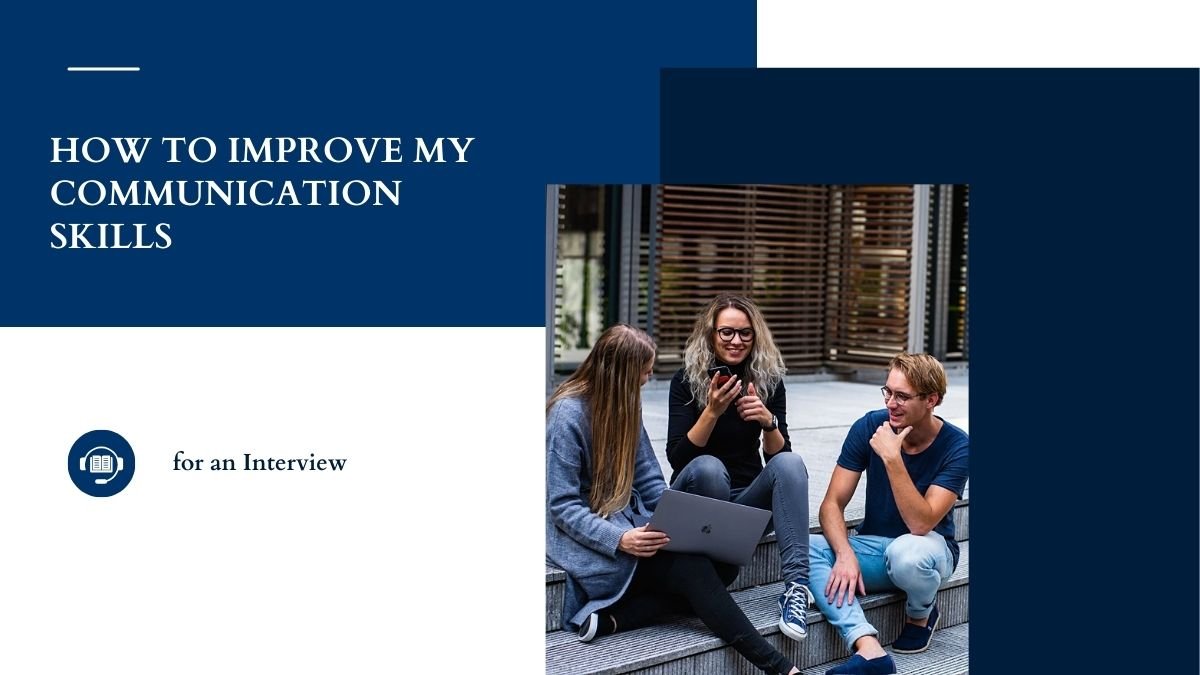Improving Communication Skills for an Interview
An interview’s success rests upon qualifications, experience, and communication. No matter how able an applicant is, performance during an interview becomes challenging if he or she cannot well articulate their point or build a good rapport with the person across the table.
Communication is not merely the act of speaking; one has to think about body language and eye contact, gestures, listening, and confidence. Studies have shown that 94% of interview communication is nonverbal—body language and behavior—with a mere 6% being verbal, that is using words.
Let us look in detail at how you can improve your communication for successfully presenting yourself at an interview.
1. Eye contact and expressions
Eyes show your emotion. In an interview situation, it is believed that your eye contact would display your level of confidence, focus, and interest in the conversation.
If you keep looking at the floor or else somewhere else, people will think that you are nervous or uncomfortable.
Maintain eye contact; it shows the other person that you were attending to them and are prepared.
Do show your interest or passion on your face; being professional does not mean looking robotic.
Smile! A casual friendly smile makes interviewers feel at ease with you, thereby enhancing both communication and trust.
For example, if you are talking about your last project that took all your hard work, you should share a hint of that happiness on your face as a way to express your version with passion.
2. Speak slowly and clearly
Most of the time, nervousness in interviews makes people speak quickly or, worse, fill empty spaces.
Speaking slowly, clear proves that you have the ability to regulate your emotions.
The interviewers don’t get your message if you know your answers but say them too fast or messily.
Relax, take a deep breath, and answer in comfort.
Selfishly speeding through the interview will never make it look good on you.
For instance, for a “Tell me about your past experience” question, say just what needs to be said with relevant examples without wasting too much time.
3. Listening Skills
Communication is not only about speaking; it also means being a good listener.
If you do not listen to the question and start to answer immediately, you show discourtesy and inattentiveness.
By all means, pay attention to the interview from beginning to end; this allows you not only to answer correctly, but also to ask valuable questions.
Taking mental notes or writing down key points as you listen shows your genuine interest.
For example, if the interviewer asks to explain your role in a team project, listen through the entire question and then answer with examples.
4. Speak with confidence
Confidence is one thing, arrogance is another.
You must not only have faith in your abilities, but also communicate to the interviewer that you are right for that position.
Go through your resume carefully so that you can freely talk about your experience and achievements.
Read the job description advertisement 2-3 times so that you grasp what words and skills are expected of you.
Be proud of your accomplishments and say so.
For instance, simple language like “I helped the team be 20% more productive in the last project” brings out your confidence.
5. Choosing the right words
Go for complex and difficult words when the situation begged, but not when it isn’t your cup of tea.
Simple language is the best.
The more you use terminology and vocabulary specific to your industry or role, the more you demonstrate your know-how and capability.
Under no circumstances should you be very informal, and steer clear of colloquialisms or slang.
For example, use “I applied Agile methodology in project management” instead of saying “I did it.”
6. Don’t go on and on
Talking for too long and forking off-topic are clear signs of unpreparedness.
Concise answers and great focus on what really matters.
Say just what is needed.
For example, “What are your strengths” would consist in mentioning 2-3 key points, each supported by examples.
7. Consider your answers to the questions
Preparing for behavioral interview questions comes much in advance. These questions are meant to assess your behavior in the past and your ability to take decisions.
Reminisce on your past experiences and projects that will help you answer well.
When in doubt as to which example is best to use, take time to reflect and proceed when you think an appropriate example comes to mind.
For example, when asked, “Have you ever led a team through a difficult situation?,” talk about an actual situation in your past.
8. Ask the interviewer questions
This opportunity is often missed by candidates.
Asking questions allows you to gather information regarding the company’s culture, people, and work environment.
This also demonstrates your attentiveness and genuine interest.
Be sure to prepare questions beforehand and ask them at the end of the interview.
Examples:
- What is the usual working style in the team?
- Which metrics are used to evaluate success for this role?
9. Practical tips
- Practice in front of a mirror: It’ll help you to improve body language and facial expressions.
- Record and listen: Record and listen to the speech and improve.
- Mock interview with a friend or mentor: Get the feel of a real interview and gain confidence.
- Positive mindset: It’s okay to be nervous; remind yourself that you have prepared for this.
Conclusion
Effective communication in an interview doesn’t mean only giving answers to questions. It’s the whole nine yards including your confidence, listening abilities, body language, and choice of words.
- Eye contact and smile
- Giving clear and slow speech
- Listening actively
- Acting confidently
- Giving precise and effective answers
- Answering questions effectively
- Querying the interviewer
Adopting all these techniques will not only leave a great impression on the interview but also stand out as a strong professional.








